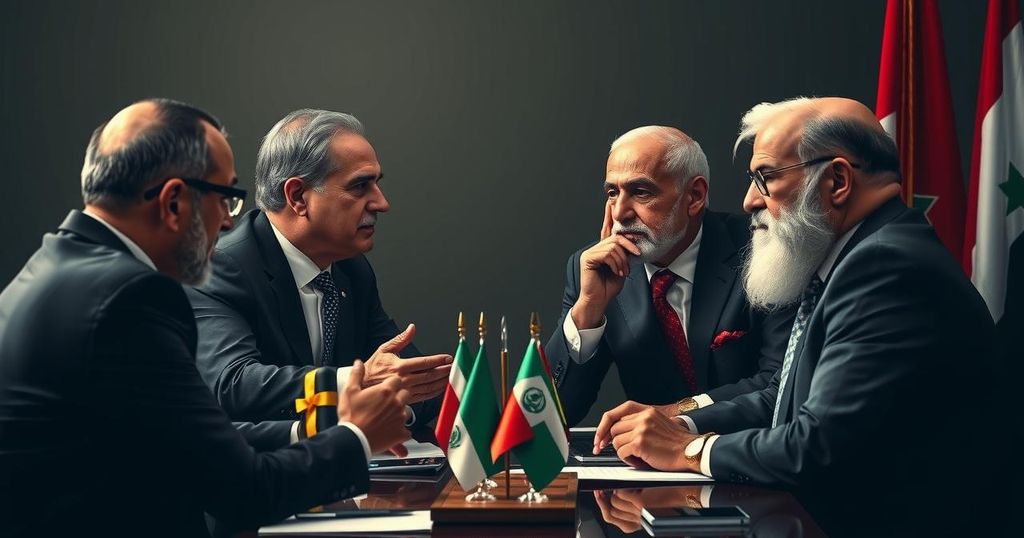UAE and Qatari Leaders Discuss Cease-Fire Efforts in Middle East

UAE President Sheikh Mohamed bin Zayed Al Nahyan and Qatari Prime Minister Sheikh Mohammed bin Abdulrahman Al Thani convened in Abu Dhabi to discuss efforts for a cease-fire and de-escalation in the Middle East. The leaders highlighted regional ties and cooperation, addressing the urgent need to prevent conflict expansion amid escalating violence in Gaza, Lebanon, and Yemen.
On Tuesday, United Arab Emirates (UAE) President Sheikh Mohamed bin Zayed Al Nahyan met with Qatari Prime Minister Sheikh Mohammed bin Abdulrahman Al Thani in Abu Dhabi to discuss strategies for attaining a cease-fire and comprehensive de-escalation in the Middle East. This meeting was held at Qasr Al Shati Palace and reported by the UAE state news agency, WAM. The leaders emphasized the necessity of strengthening cooperative ties to maintain regional stability and to exchange insights on various pertinent regional and international matters. During the meeting, both leaders highlighted the importance of intensifying efforts toward a cease-fire and de-escalation in the Middle East, aiming to prevent the conflict’s expansion and ensure regional security. With ongoing tensions in the area resulting from Israel’s offensive in Gaza and subsequent conflicts in Lebanon and Yemen, this dialogue underscores a vital diplomatic endeavor to restore peace and stability in a tumultuous region. The discussions occurred against a backdrop of escalating violence, which has seen significant civilian casualties in Gaza, underscoring the urgent need for diplomatic resolutions.
The ongoing violence and hostilities in the Middle East have significantly heightened since the commencement of Israel’s military operations in the Gaza Strip, which have reportedly led to substantial loss of life and displacement. The rise in regional tensions has also drawn in Lebanon and Yemen, creating a complex geopolitical crisis that necessitates collaborative efforts for peace. As a result, discussions between leaders in the region are crucial in formulating strategies aimed at achieving cease-fires and preventing further escalation. The UAE and Qatar’s joint commitment highlights their roles as influential stakeholders in promoting regional stability and security.
In conclusion, the meeting between the leaders of the UAE and Qatar signifies a collective effort to address the ongoing challenges in the Middle East. By underscoring the importance of a cease-fire and de-escalation, and emphasizing their commitment to regional stability, both nations seek to play a pivotal role in mitigating conflict and fostering a more peaceful environment. The urgency of their discussions reflects the dire circumstances prevalent in the region and the imperative for diplomatic solutions to prevent further human suffering.
Original Source: www.aa.com.tr








